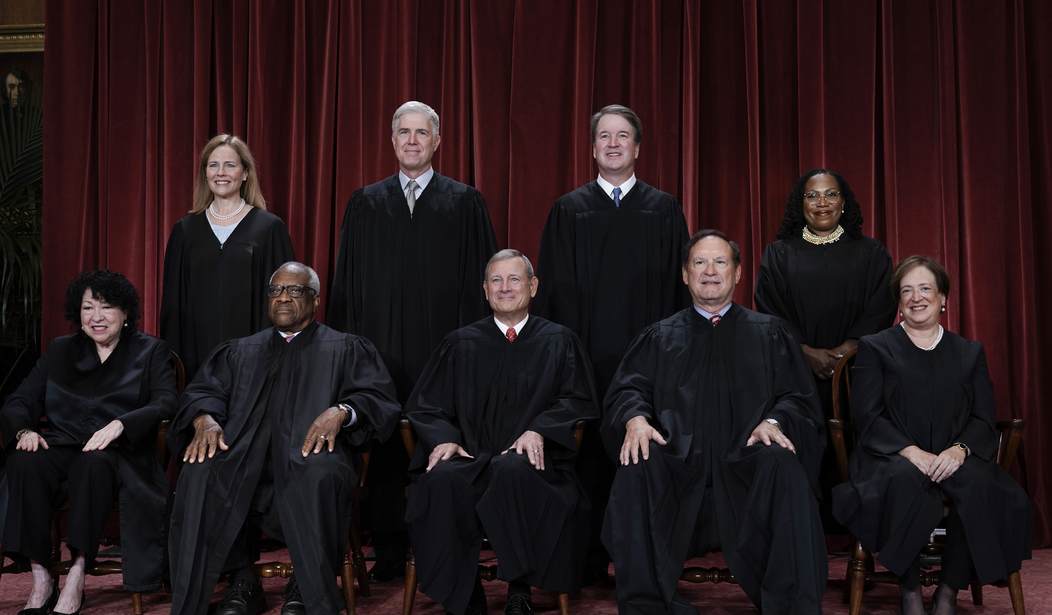We’re in the home stretch for Supreme Court opinions, with only ten decisions left to be handed down by the High Court before they take their summer recess. Three were issued on Tuesday, which means seven remain, with the next hand down day set for Thursday.
Readers seemed to find last week’s rundown helpful, so we’ll continue it here with a brief overview of Tuesday’s rulings:
June 27, 2023 Decisions
Author: Roberts
Dissent: Alito, Gorsuch, Thomas
Appeal From: Supreme Court of North Carolina
Basic Facts: Following the 2020 census, the GOP-majority legislature drew new congressional maps challenged by Democrats as impermissible partisan gerrymandering in violation of the state’s constitution. The then-Democratic majority North Carolina Supreme Court rejected the argument that the Federal Elections Clause vests exclusive and independent authority in state legislatures to draw federal congressional maps, enjoined the use of the maps, and remanded the case to the trial court for remedial proceedings. The state’s Republicans challenged the court’s ruling, appealing to the Supreme Court. (In the meantime, the North Carolina Supreme Court, with a new 5-2 Republican majority, reversed its earlier ruling, holding that it lacked the power to review the challenges to the map.
Issue: Whether the Elections Clause of the (U.S.) Constitution vests state legislatures with authority to set rules governing federal elections free from restrictions imposed under state law.
Holding: The Supreme Court has the power to review the case despite the subsequent NC Supreme Court decision. Further, the Elections Clause “does not insulate state legislatures from the ordinary exercise of state judicial review. “A state legislature may not ‘create congressional districts independently of’ requirements imposed ‘by the state constitution with respect to the enactment of laws.'” (North Carolina Supreme Court affirmed.)
Author: Kagan
Split: 7-2
Dissent: Barrett, Thomas
Appeal From: Colorado Court of Appeals (Colorado Supreme Court denied review)
Basic Facts: The defendant in the case, Billy Counterman, was sentenced to four-and-a-half years in prison for stalking after he sent Facebook messages to a local musician that left her feeling “extremely scared.” Counterman contends that, to determine whether speech is a “true threat” (and thus, not protected by the First Amendment), courts must consider the speaker’s intent; the state contends that courts should apply an objective test that looks at whether a reasonable person would regard the statement as a threat of violence.
Issue: Whether a speaker’s subjective intent should determine whether speech is a “true threat” or an objective/reasonable person standard should apply.
Holding: A mental state of “recklessness” is enough. The state must show that the defendant consciously disregarded a substantial risk that his communications would be viewed as threatening violence. The state need not prove any more demanding subjective intent to threaten another. (Colorado Court of Appeals decision vacated; case remanded to the trial court for retrial under the recklessness standard set forth by the Supreme Court.)
Mallory v. Norfolk Southern Railway Co.
Author: Gorsuch
Split: 5-4
Dissent: Barrett, Kagan, Kavanaugh, Roberts
Appeal From: Supreme Court of Pennsylvania
Basic Facts: Robert Mallory, a railroad employee from Virginia, blames his exposure to asbestos and other chemicals on the job for his diagnosis of colon cancer. To sue Norfolk Southern (headquartered in Virginia) in Pennsylvania, he relied on a state law that requires out-of-state corporations to register with the state as a condition of doing business there. Under state law, that registration gives state courts jurisdiction over the companies. But the Pennsylvania state courts ruled that Pennsylvania’s registration scheme violates the 14th Amendment’s Due Process Clause by giving state courts jurisdiction over out-of-state corporations in all circumstances.
Issue: Whether a Pennsylvania court can hear a lawsuit brought against a Virginia-based railroad company by a Virginia man who worked for the railroad in Virginia and Ohio.
Holding: Yes. “Norfolk Southern argues that the Due Process Clause entitles it to a more favorable rule, shielding it from suits even its employees must answer. We reject the company’s argument. Nothing in the Due Process Clause requires such an incongruous result.” (Pennsylvania Supreme Court decision vacated; case remanded to (Pennsylvania) trial court for further proceedings.)














Join the conversation as a VIP Member